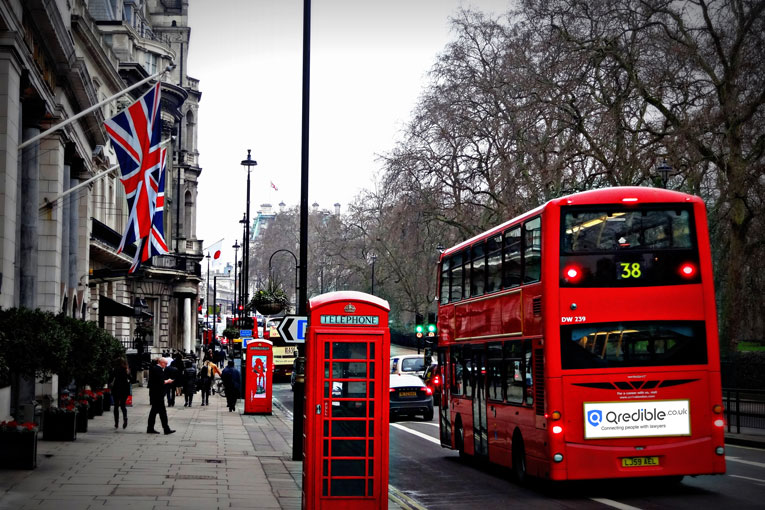How to apply for British Citizenship?

Applying for British citizenship is an exciting new frontier for many. No matter where you come from or what your life experiences have been, re-establishing yourself as a part of British society can be a powerful and life-changing experience.

British citizenship is granted for life and cannot be lost as a result of absence from the UK for any duration. It can only be revoked if it was obtained using false information or following a serious conviction. As such, it is the perfect way to cement yourself as an individual who identifies with the British peoples, culture, and way of life.
Citizenship via Birth
Briefly, British citizenship is either obtained at birth or through the process of naturalisation later in life. Citizenship by birth was deemed automatically grantable to any person born in the UK before 1983. After 1 January 1983, any individual with at least one parent holding British citizenship was considered British by birth.
More recently, after 1 July 2006, children no longer automatically take British nationality from their father if their father is not married to their mother. Although often a legal and bureaucratic nuance, children either need to register to remedy this discrepancy, or can wait to become British once their parents are legally married.
Citizenship via Naturalisation and Registration
If you were not born with as a British descendent, you must apply to the Home Office through the process of naturalisation or registration to become a citizen of the United Kingdom. Both of these processes grant all of the benefits associated with being born a British citizen, including applying for a British passport, voting, and living and working in the UK free from immigration regulations and rules.
To be eligible to apply for naturalisation you must satisfy several criteria:
You must be 18 years of age or older
- You must have settled in the UK for at least twelve months at the time of making your application, under either indefinite leave to remain circumstances or as an EEA national with settled status
- May not have excessive absences from the UK during the qualifying period
· More than 450 days in the last five years
· More than 90 days in the 12 months immediately before submitting your application
- You must satisfy the English language requirements
- You must pass the life in the UK test
· The Knowledge of Language and Life in the UK test (KOLL) is designed to make sure you are aware of the basic tenets of UK life. This includes knowledge of UK customs, government, law and values. For a more in-depth explanation of the test, see here.
- You must be of ‘good character’, meaning you do not have any serious or recent criminal charges and have not broken any immigration laws or conditions
The process of citizenship through registration is typically only applicable to children under 18. However, in some circumstances, adults qualify for registration. For example, an individual born and raised in the UK for the first ten years of their life can register at any point in their life.
Citizenship versus Indefinite Leave to Remain
In many ways, obtaining citizenship and obtaining indefinite leave to remain (ILR) are similar. Under IRL, you are granted permission to remain in the UK without any restrictions on work or living. Additionally, all children born to parents with ‘settled’ ILR status are automatically granted British Citizenship (given they are born within the UK).
However, ILR is automatically invalidated if you leave the UK for more than two years, whereas citizenship can never be revoked due to absence from the UK. You can apply for ILR after five years of residence. Finally, only British citizens are entitled to a British passport.
Citizenship by Marriage
Automatic citizenship by marriage is not granted in the UK. The spouse of a British citizen can apply for naturalisation after three years of residence in the UK. However, the requirement of obtaining indefinite leave to remain still stands for a married individual, and this can only be obtained after five years. As such, most spouses apply for naturalisation after the requisite five years.
Dual Citizenship
Dual citizenship is permitted under British law. You are not required to renounce any other citizenships before applying to become a British citizen. However, it is advised that you check whether your country of birth allows dual citizenship, as some countries have requirements which could impact your ability to maintain multiple nationalities.
How to apply for British Citizenship?
Once you have established eligibility, there are three viable ways to apply for British naturalisation or registration. The first is to submit an individual application. The second is to apply through a National Checking Service (NCS). The third is to apply through an agent or representative. Given the complexities and opportunity for error throughout this process, it is strongly advised that you apply with the guidance of a specialised organisation. If you choose to apply on your own, you will need to independently complete a Form AN (Application for Naturalisation) or Form B (Application for Registration).
As a part of the application process, you will be required to provide biometric data. This includes fingerprints and a photo at a set cost of £19.20. After you submit your application (or a third party does so on your behalf), the Home Office will inform you on how to proceed with providing this information.
Once the Form AN (or Form B) is complete, you will need to send it along with the required fees, to the following office:
Applying from within the UK
UKVI
Department 1
The Capital
New Hall Place
Liverpool
L3 9PP
Applying from Overseas
Department 1
UK Visas and Immigration
PO BOX 306
Liverpool
L2 0QN
The fee scheme is highly variable in independent situations, but naturalisation often costs £1330, whereas registration costs £1206. In most cases, other additional fees apply. A comprehensive breakdown can be found here.
The application process can be lengthy. It is not uncommon for wait times to exceed six months. Once a decision is made, or if any further information is required, the UK Visas and Immigration office will get in contact with you using the information you provided in your application.
If your application is approved, congratulations! You will be invited to attend a Citizenship Ceremony. At the Ceremony, you will be required to make an Oath of Allegiance to the UK, promising to uphold and respect the laws, freedoms, and rights you have been granted as a new citizen. It is the beginning of a new life with new opportunities and paths ahead.
Conclusion
Do you need help applying for British Citizenship for a successful outcome? There is no right of appeal if British Citizenship is refused. Our specialist immigration solicitors can provide you with up-to-date advice on the law that applies to your circumstances
Do you need a solicitor?
Find a solicitor on Qredible in just a few easy steps
















